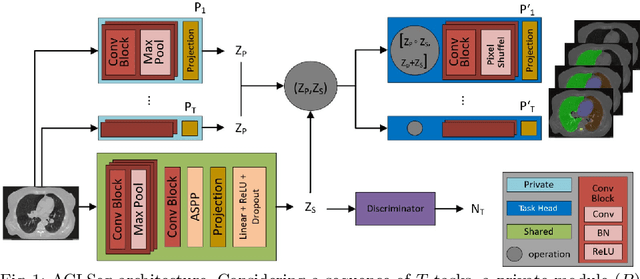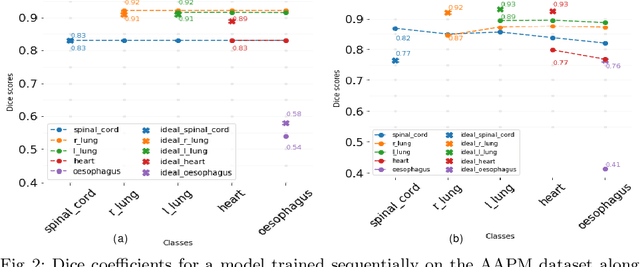Paul Thomson
Continual Class Incremental Learning for CT Thoracic Segmentation
Aug 12, 2020



Abstract:Deep learning organ segmentation approaches require large amounts of annotated training data, which is limited in supply due to reasons of confidentiality and the time required for expert manual annotation. Therefore, being able to train models incrementally without having access to previously used data is desirable. A common form of sequential training is fine tuning (FT). In this setting, a model learns a new task effectively, but loses performance on previously learned tasks. The Learning without Forgetting (LwF) approach addresses this issue via replaying its own prediction for past tasks during model training. In this work, we evaluate FT and LwF for class incremental learning in multi-organ segmentation using the publicly available AAPM dataset. We show that LwF can successfully retain knowledge on previous segmentations, however, its ability to learn a new class decreases with the addition of each class. To address this problem we propose an adversarial continual learning segmentation approach (ACLSeg), which disentangles feature space into task-specific and task-invariant features. This enables preservation of performance on past tasks and effective acquisition of new knowledge.
 Add to Chrome
Add to Chrome Add to Firefox
Add to Firefox Add to Edge
Add to Edge